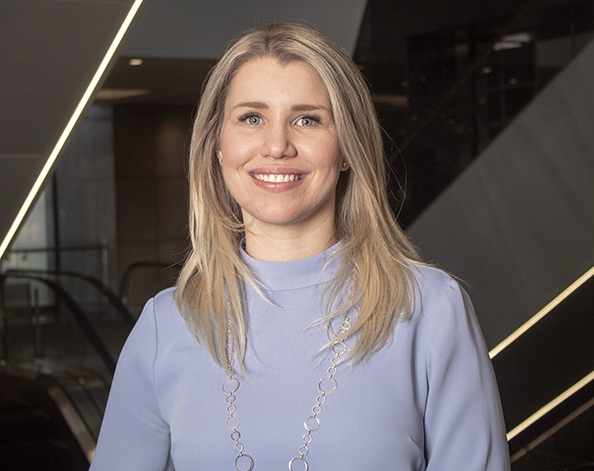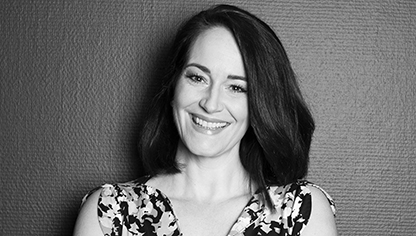It was the former Nobel laureate in economics, Milton Friedman, who said that “the business of business is business”, stating that a company should have no responsibility to the public or society at large and that its only responsibility was to its shareholders.
However, we have moved on significantly from those days, especially as we have seen the impact of pursuing narrow and short-term profits at the expense of the environment, communities, employees and society at large. There is now a broader understanding of a responsibility to a wider range of stakeholders and ESG investing encapsulates many of these.
ESG, it should be noted, is not about the pursuit of romanticised ideals at the expense of shareholder value. By looking at the impact of an investment on a holistic level, it forces investors, and the companies they invest in, to look at their businesses in a sustainable way. The philosophy is that by pursuing ESG principles over the long term, companies will also become more sustainably profitable and realise improved returns over the longer term.
Like the best investment strategies, in order to be effective ESG needs to be managed in a rigorous and systematic way, employing a wide range of metrics, analysis and discipline. It also involves a fundamentally active and participative mindset that focuses on more than just selling the shares of companies that don’t uphold the best standards of ESG and buying shares in those that do.
Q&A with Investec Wealth & Investment
In this Q&A, Investec Wealth & Investment’s ESG team gives us a look into the inner workings of the concept, while also explaining their approach. Our panel is made up of Barry Shamley, portfolio manager, Simone Smith, head of compliance and Campbell Parry, portfolio manager and analyst (all at Investec Wealth & Investment).
Barry Shamley explains how the ESG philosophy works in practice when it comes to investing, including voting and engaging with companies’ management teams.
Please map out Investec Wealth & Investment’s ESG evaluation and investment mandate – from data and analytics, to voting, to client engagement, to investment.
We incorporate ESG considerations in our investment process. There are two core components, screening (including the analysis of this data) and stewardship. We screen our investment universe for companies with high (that is poor) ESG risk scores and, when flagged, we take a deeper dive to understand the core contributors to this score.
It is important to understand the differences within the Responsible Investment universe starting with exclusionary mandates followed by ESG investing (Screening and Stewardship), Sustainable investing and ultimately Impact investing. Our general equity mandates do not exclude any particular companies or sectors.
Sustainable cash flow return on invested capital (CFROIC) is at the heart of our process. We believe that companies’ management teams need to drive their long-term strategies around this concept and companies that consider all environmental, social and governance considerations in their decision making are likely to ensure long term sustainability of their profitability. We believe the correct remuneration structures are critical. Incentives drive behaviour.
Increasingly we are considering non-financial data encapsulated in third party ESG risk scores. An example would be a company that is falling short on its emission reduction commitments which could potentially lead to higher expenses in the future. Materiality is key. We aim to quantify this data and determine its impact on future profitability and valuation.
Another key risk we need to be aware of is that of stranded assets. The transformation to a more sustainable world is happening at an increasing rate. Fossil fuel assets and in particular, thermal coal mines have experienced material drops in valuation. Many large global investors are now prohibited from owning companies that derive more than 30% of their profitability from thermal coal. This obviously has an impact on the price you will achieve when selling a thermal coal mine today.
The other core component of our ESG process is stewardship. We vote at company meetings and aim to drive positive change and ensure good governance through this process. Part of this process involves engaging with management when we are voting against a particular resolution and helping them understand our rationale.
What benefit have you seen by employing this process? Why does it make sense for Investec and its clients?
Companies with better or improving ESG risk scores have outperformed their peers over the recent past and I don’t see why this trend shouldn’t continue. Being a good steward is what our clients expect from us and it is our responsibility to fulfil this. Investec has always spoken about living ‘in society’ and not ‘off it’ and we hope our efforts in this space are a manifestation of these values.
While third party research houses provide a very useful service, it’s crucial to have an independent pragmatic investment process which overlays these services. Many ESG risk rating agencies have little or low correlation in their output. This is the benefit provided by an active investment manager who can assess materiality and more importantly engage when necessary.
How do you manage or assist companies with a poor ESG score to change their outlook?
Companies that have high or risky ESG risk scores generally have a higher cost of capital and a lower rating than their peers with better ESG risk ratings. Our interactions are intended to highlight these observations to management. Generally, when they see the potential benefit they are more interested in making the necessary changes.
Sometimes all that is lacking is their engagement with an ESG risk rating agency and increased disclosure.

Companies with high or improving ESG risk scores have outperformed their peers over the recent past and I don’t see why this trend shouldn’t continue. Being a good steward is what we are being paid for and what our clients expect from us.
What investment opportunities do you see when you invest in a company that is on the beginning of its ESG journey?
ESG ‘momentum’ is a useful positive signal, all other things being equal. We would expect companies that are working towards improving their ESG risk rating to perform well as they become investable for more ESG mandates, be they active or passive.
Why is collaboration with other investors and asset managers important if large scale change is to be achieved in ESG?
It’s all very well voting but often we don’t have sufficient numbers to move the needle. In order to drive change and push for sustainability, at some point a large part of the asset management industry will need to subscribe to the same vision. The UN Principles for Responsible Investing – which we are a signatory to – are very helpful in this regard and provide a framework for asset managers to independently act in a fashion that pushes for better outcomes.
We’ve spoken a lot about the E in the name – what about the S and G? How do these contribute to sustainability? How do you manage situations for example, where there is a governance failure?
The ESG risk score provided by Sustainalytics considers all aspects of ESG. While we would be less likely to sell out of a specific company on E or S, governance is where the buck stops. We can work with management to help them improve their E or their S through engagement but if management are untrustworthy or have a history of misleading investors, we will not hold the share.
Simone Smith explains how Investec Wealth & Investment’s Responsible Investing website will help clients to engage in the ESG philosophy.
What is Investec Wealth & Investment hoping to achieve with the launch of its Responsible Investing webpage?
As long-term active investors, we acknowledge that as custodians of our clients’ wealth, we have the responsibility to invest and continue to invest in a way that promotes and aligns to long term sustainability.
Our commitment to sustainability recognises the interconnected nature of our business, the economy, the environment and society. The purpose of our webpage is to showcase to clients the active investment activities undertaken by Investec Wealth & Investment as well as provide ongoing feedback to clients with regards to our ESG and responsible investing framework.

Responsible investing and ESG enables investors to focus both on investment returns as well as the social and environmental impact that their portfolio has had.
If there was one nugget of info that you would like readers to gain from this article, what would it be?
Responsible investing and ESG enables investors to focus both on investment returns as well as the social and environmental impact that their portfolio has had. Investors are now conscious of the positive impact their investment can have beyond traditional metrics such as capital growth and income. I believe investing going forward will continue to be based on financial returns, but more importantly, on the assessment of the portfolio to effect positive sustainable and impactful change.
Campbell Parry talks about the specific ESG issues when it comes to fossil fuel companies, and how these businesses can actually help manage the transition to renewables.
How does Investec manage the relationship with fossil fuel companies?
Investec Wealth & Investment’s approach towards South African fossil fuel companies is balanced by the understanding that these companies fulfil an important need in society by providing the vital raw materials necessary for growth and job creation, and by the recognition that management of the companies have a fiduciary duty to produce and supply those materials in an increasingly sustainable way.
We have increased capacity within our research team to allow for active engagement with fossil fuel companies on ESG matters, as we are fully aware that equity and debt capital is increasingly scarce for these businesses. Our meetings with them therefore usually start with a discussion of ESG performance, for which we keep our own numbers (rather than wait for the well-known ratings agencies to produce them).
The discussions always focus on the direction of travel – is the company getting better each year at being a good corporate citizen and steward of the environment? Allied to this, we insist that all fossil fuel companies appoint a dedicated ESG executive, perform thorough ESG due diligence when pursuing M&A, and are consistent in their ESG reporting over the years. It’s a symbiotic relationship from which both parties can benefit.
We like to think that corporate engagements with investors over ESG matters has been a force for change. Exxaro – a thermal coal company – has one of the best environmental track records among SA-listed resource companies. Anglo American’s community engagement has been second to none.
Why is it important from both a financial and ethical standpoint to transition from fossil fuels to renewable energy?
Fossil fuel companies will find it very difficult to raise capital to grow existing production, but not if that growth is greener. For example, the global steel industry finds it hard to raise finance to pursue growth in conventional blast furnace steel output, but doesn’t seem to have a problem getting banks interested in the new technology around hydrogen-reduction of iron ore, which involves no carbon. The steel industry accounts for about 8% of global GHG emissions, so it has an ethical obligation as well. Ultimately, an ethical company is a financially robust company.
About the author

Caroline Edey-van Wyk
Brand Editor
Colloquially known as Investec’s “storyteller,” Caroline curates and produces all the content that underpins Investec's Out of the Ordinary brand promise. She works across the business but specialises in the areas of Sustainability, CSI, Sponsorships and HR. Caroline holds a Bachelor of Journalism degree in Political Science and Broadcasting - cum laude. Before she joined Investec she was a broadcast journalist at Sky News and eNCA.
Get Focus insights straight to your inbox




